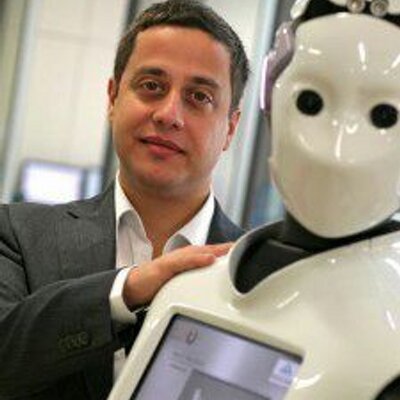Special Session on
Nonverbal Communication Skills
in Humans and Robots
We are approaching a future where social robots will progressively become widespread in many aspects of our daily lives, including education, healthcare, work, and personal use. For example, social robots will help us to address many challenges facing the public, which are created by the global pandemic outbreak currently. They can provide physical, cognitive, and emotional support to elderly people self-isolating in care homes, or patients discharged from intense care unit to home. All such practical applications require that humans and robots collaborate in human environments, where social interaction is unavoidable. Along with verbal communication, successful social interaction is closely coupled with nonverbal communication, such as observation of one’s gaze behaviour and following their attention, coordinating the form and function of hand-arm gestures, and generating appropriate co-speech gestures while communicating verbal messages. Humans perform nonverbal communication in an instinctive and adaptive manner, with no effort. For robots to be successful in our social landscape, they should therefore engage in social interactions in a human-like manner, with increasing levels of autonomy. Understanding human-human interaction is therefore the most natural guide to designing human-robot interaction interfaces that can be usable and understandable by everyone.
The key aim of this special session is to bring forth efforts to understand mechanisms underlying human-human nonverbal communication and introduce novel approaches to the design, development, and evaluation of robotic platforms inspired and driven by those mechanisms. The main challenge is that nonverbal behaviours are a highly complex phenomenon. The way how humans express and interpret social behaviours is highly affected by many different factors, including individual personality, cultural background, interacting partners, and other environmental settings. Consequently, those factors should be investigated when modelling nonverbal skills for social robots. This special session will bring together researchers with diverse backgrounds, ranging from social psychology, cognitive science, machine learning, computer vision, and human-robot interaction, to share innovative ideas, findings, and challenges related to nonverbal communication skills in humans and robots. The special session will foster multidisciplinary discussions among academic and industrial researchers towards improving robots’ nonverbal communication skills and enhancing human trust and acceptance of robots.

